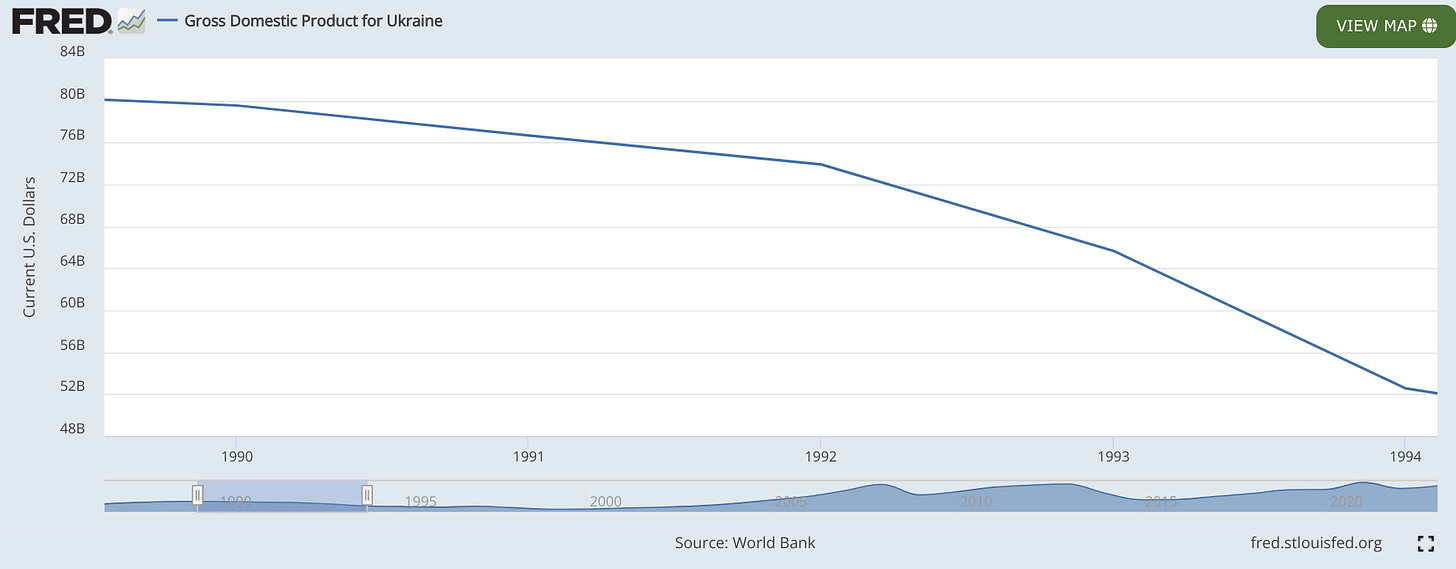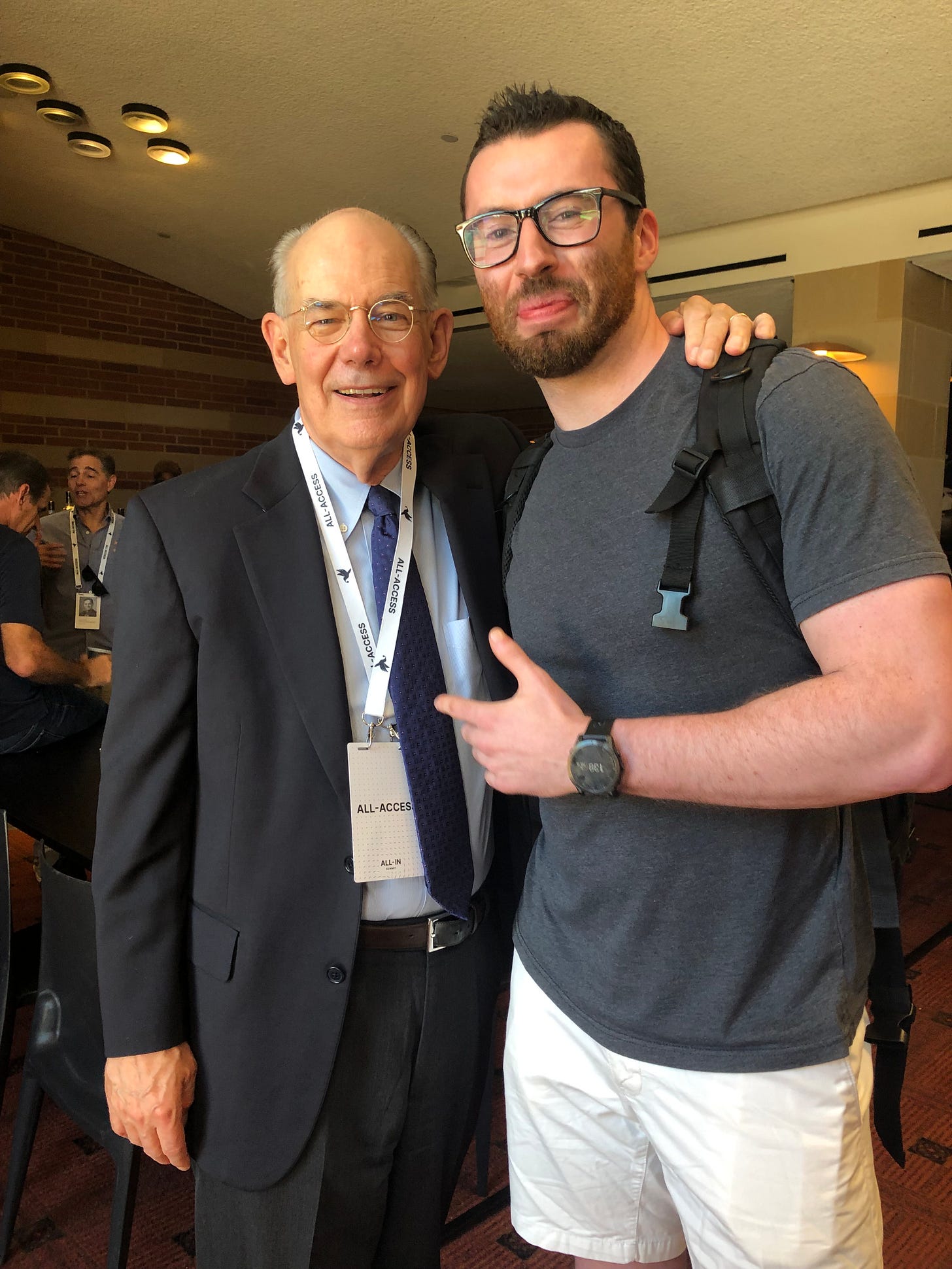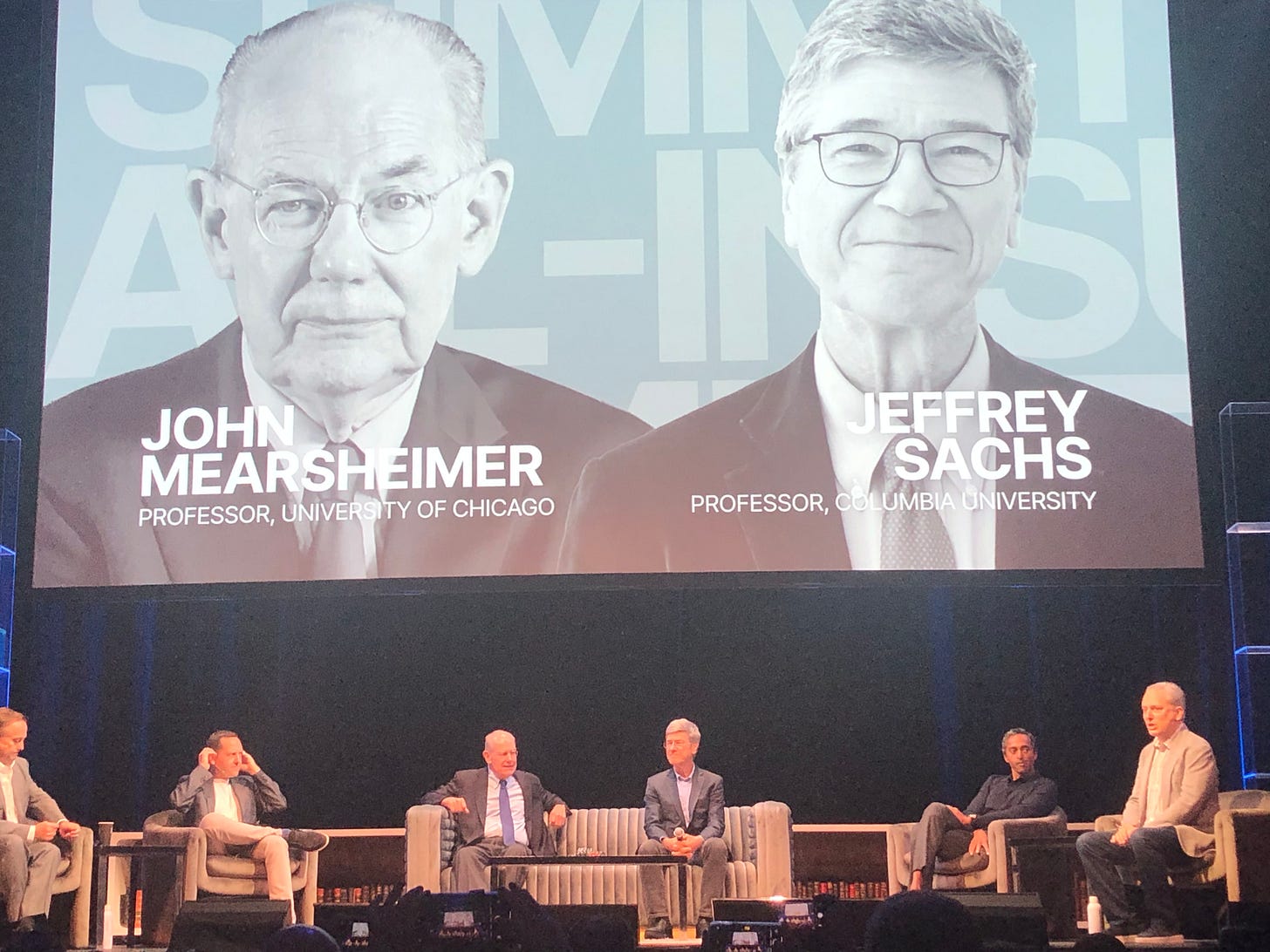The story of 1994, Ukraine giving up its nuclear weapons, and the diplomatic doublethink of security “assurances” from the Budapest Memorandum…
It’s January 12, 1994. President Bill Clinton has arrived in Kyiv to find his Ukrainian counterpart President Leonid Kravchuk melancholic, mired in second thoughts about signing a document that will determine Ukraine’s future for a generation. Ukraine is due to agree to full denuclearization in return for financial compensation, assistance with the weapons’ removal, and security assurances (how robust, we will come onto).
Following the collapse of the Soviet Union, Ukraine has inherited the world’s third largest nuclear arsenal, including 1,900 strategic warheads. Washington and Moscow have formed a de-facto alliance in pressuring Kyiv to surrender these weapons, determined that only one nuclear state should emerge from the wreckage: Russia.
President Clinton stresses privately to President Kravchuk that a delay now would set back – if not destroy – the three-way process. In a not-so-subtle threat, the US warns of major damage to US-Ukraine relations, jeopardizing Ukraine’s chances of accessing much-needed Western financial aid.
The Ukrainian economy has been in freefall. A sudden transition to a market economy has led to raging hyperinflation, slumping industrial production, and a collapse in GDP of a third between 1990 and 1994.
In these circumstances, there is little real choice. A Trilateral Statement between the US, Russia, and Ukraine is signed two days later, and Ukrainian security provisions – falling substantially short of what Kyiv had hoped for – are confirmed 11 months later in a separate document, the Budapest Memorandum, on December 5, 1994.
Today, almost 30 years on, and two-and-a-half years into Russia’s brutal invasion of Ukraine, cities have been destroyed, families ripped apart, and countless lives lost. Despite gratitude for Western military and economic support, cries of “betrayal” have rung throughout Ukraine.
But is the story so black and white? And what lessons from 1994 negotiations can be unearthed, three decades on?
» Continue reading here
This is the latest piece for Listening to the Other Side.
Following two months of research (including speaking with a lead US negotiator who was in the room), its writer, Sang-Hwa Lee, an inaugural Civic Future fellow, teased out many fascinating details:
There is a difference in word choice of “assurance” (versus “guarantee”) in the English and Ukrainian/Russian translations of the Memorandum – which many years on has led to a kind of diplomatic doublethink
Bill Clinton conceding on camera in 2023 he was wrong to take away Ukraine’s nuclear weapons
That James Baker III himself wrote an op-ed in 1993 suggesting Russia would have to join NATO to avoid disaster.
This is a great demonstration of the type of piece we’ll look to bring about with this new publication – the type of serious and detailed (though digestible) analysis we think is missing from present media incumbents, and that ought to actually help with diplomacy and result in more accurately informed officials.
Please do read it, and share.
PS. Just having attended the All-In Summit in Los Angeles, I was grateful to get to chat with Professor John Mearsheimer. He’s quoted at length (from 1993), too – so all the more reason to read!






